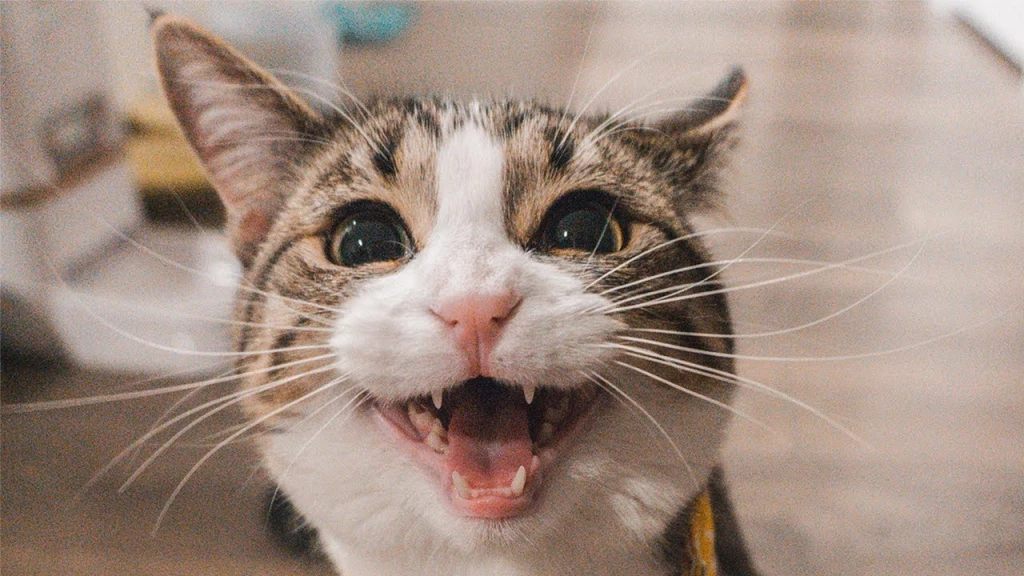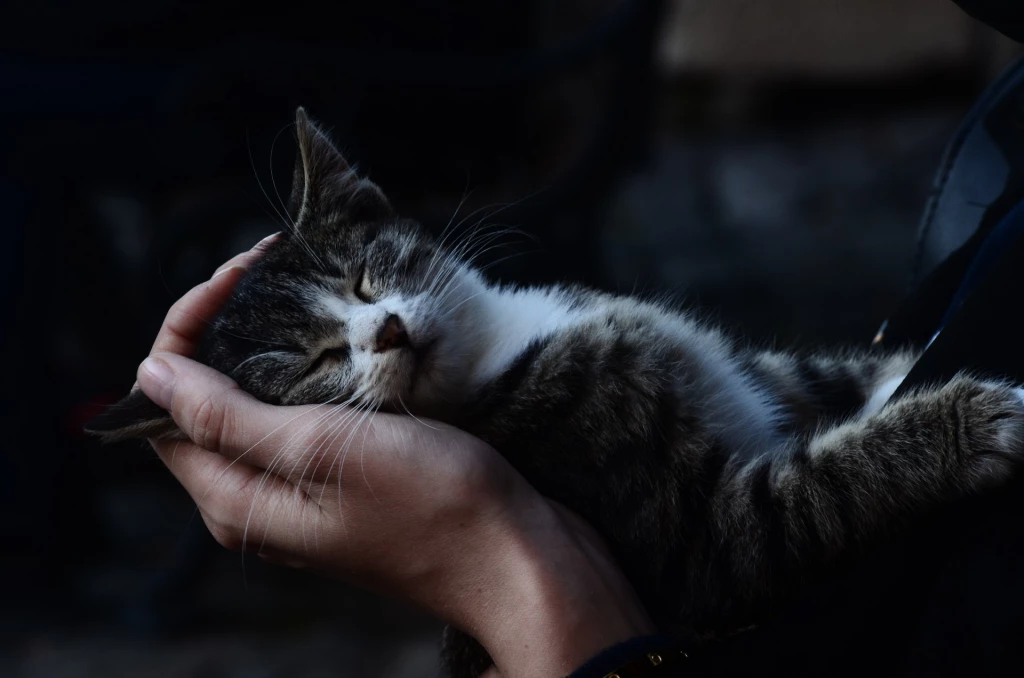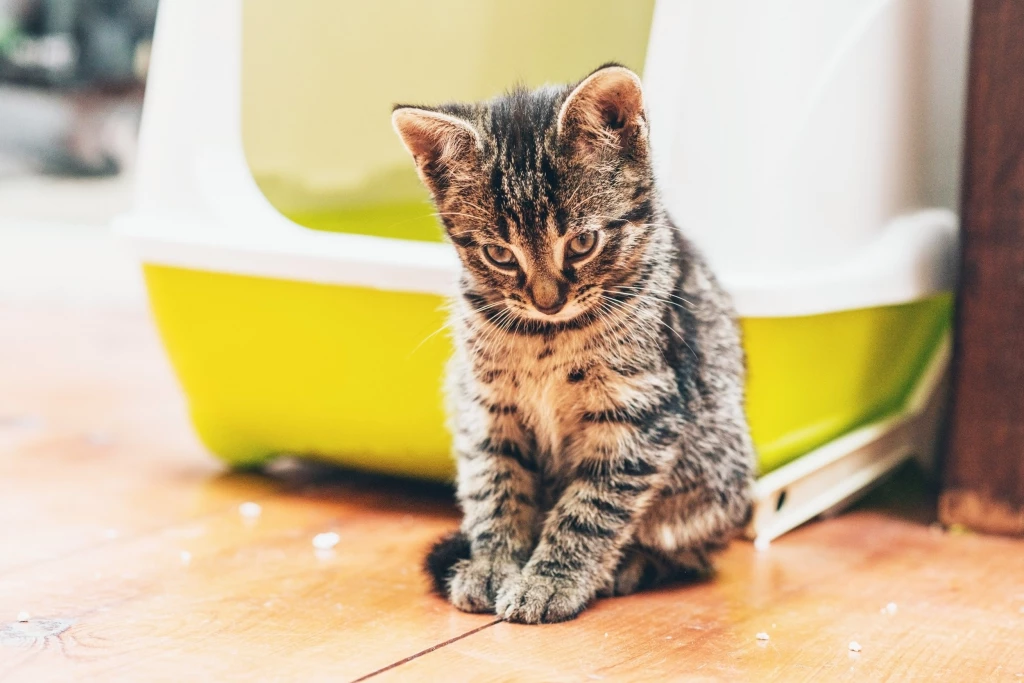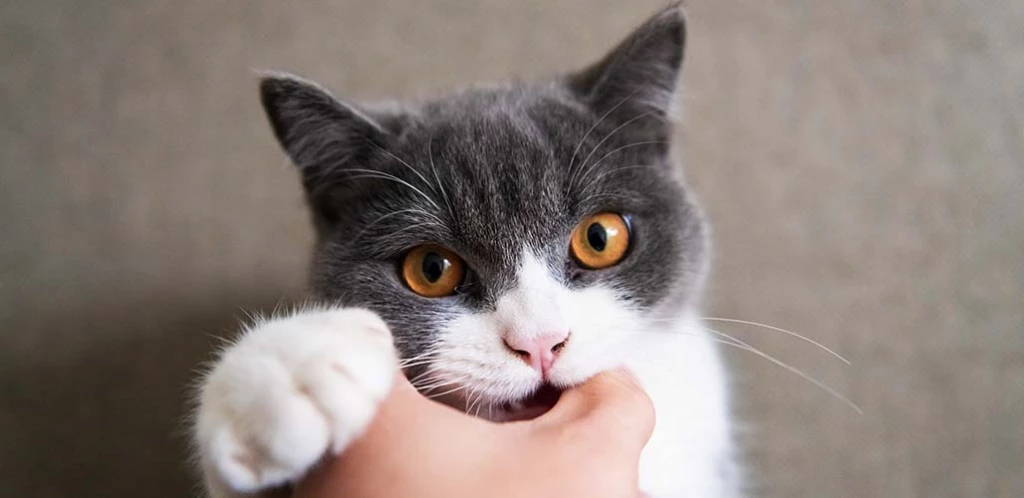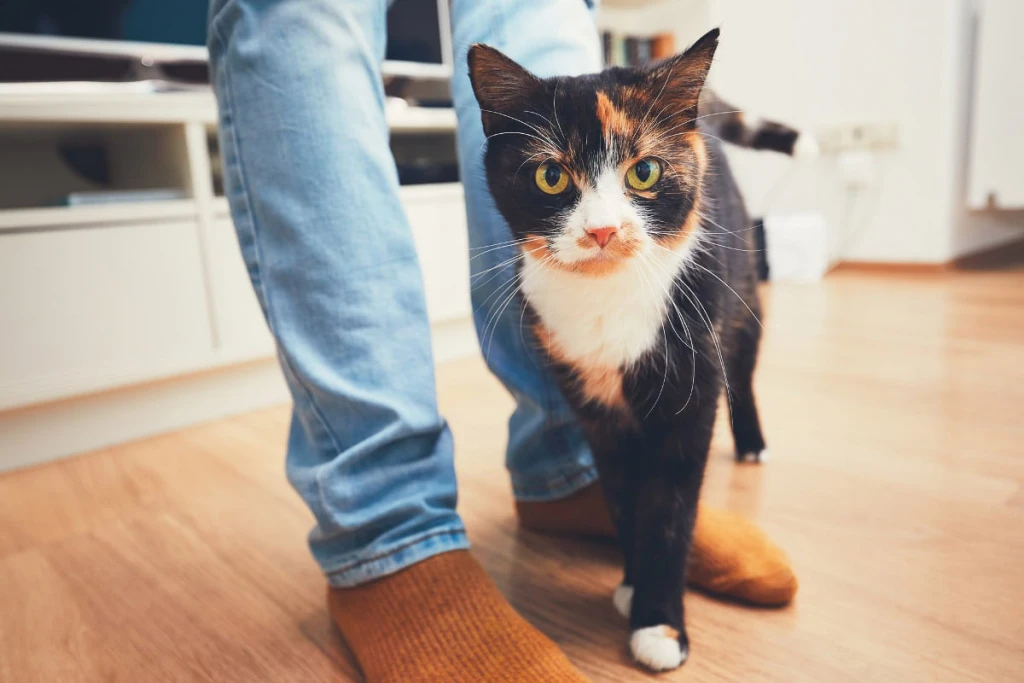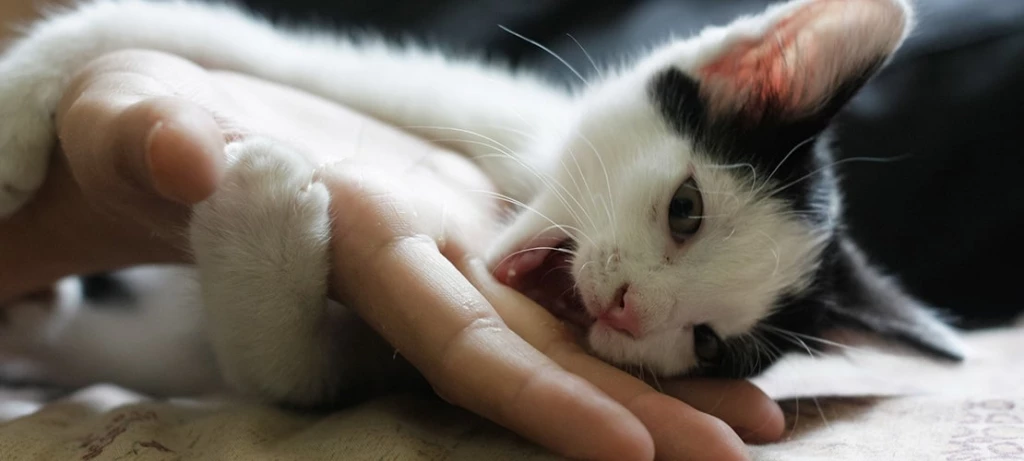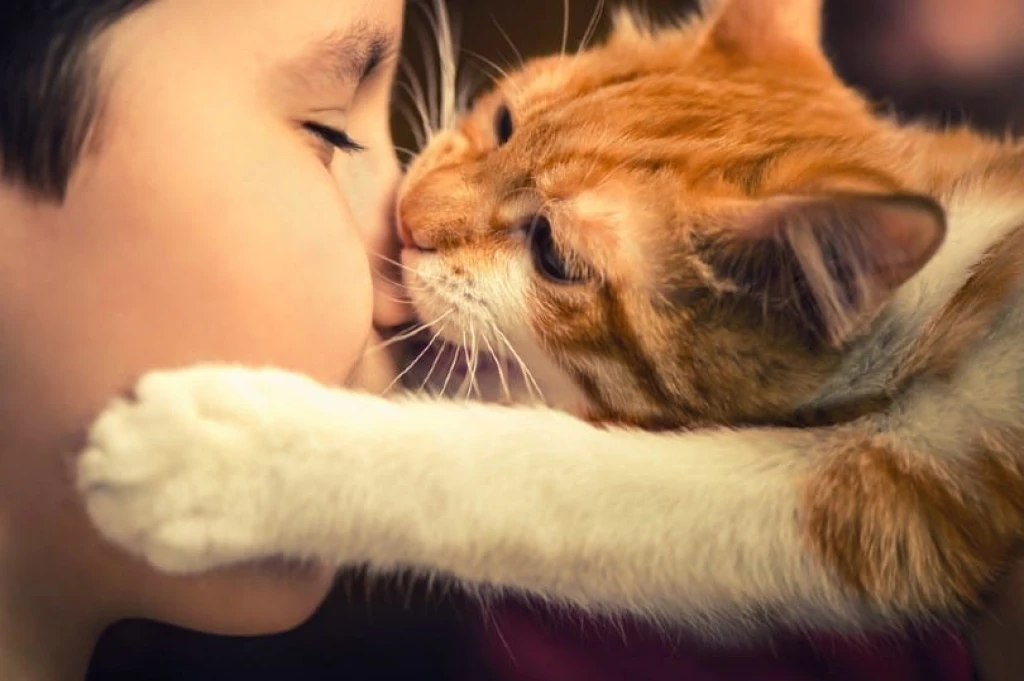Have you ever noticed that your cat meows when you sneeze? If so, you might be wondering what this means and what your cat is trying to tell you. Is your cat concerned about your health, annoyed by the noise, or just curious about what you are doing?
In this blog post, we will explore some of the possible reasons why cats meow when someone sneezes, based on scientific research and expert opinions. We will also give you some tips on how to respond to your cat’s meows and how to make sure your cat is happy and healthy.
Whether you have a sneezy cat or a sneezy human in your household, this blog post will help you understand your cat’s behavior and communication better. So, grab a tissue and read on to find out why your cat meows when you sneeze.
Why Cats Meow?
Cats meow for various reasons, and it's their way of communicating with their owners. Here are some common reasons why cats meow:
- To get attention: Some cats meow to grab their owner's attention. They may want to play, be petted, or just want their owner to acknowledge their presence.
- To express hunger: Cats may meow when they're hungry, especially if their food bowl is empty. Some cats may even meow in anticipation of mealtime.
- To show affection: Some cats meow to show their owners affection. This type of meow is usually accompanied by purring and kneading.
- To express discomfort or pain: Cats may meow when they're in pain or uncomfortable. For example, if they have a health issue or are experiencing discomfort due to an injury, they may meow to communicate their distress.
- To express territorial behavior: Some cats meow to assert their territorial behavior. They may meow to signal that a particular area or object belongs to them.
Understanding the different types of meows and their meanings can help cat owners better understand their furry friends' needs and behaviors.
Understanding Your Cat's Meowing
To better understand your cat's meowing, it's important to recognize the different types of meows and their meanings. Here are some common types of meows and what they could indicate:
- Short, high-pitched meow: This type of meow is often used as a greeting or to get attention.
- Long, drawn-out meow: This type of meow may indicate that your cat is feeling lonely or is in need of attention.
- Low-pitched, growling meow: This type of meow is usually a sign of aggression or frustration. Your cat may be warning you to stay away or to back off.
- Chirping or trilling meow: This type of meow is often a sign of excitement or happiness. Your cat may be trying to get your attention to play or to express its joy.
- Loud, insistent meow: This type of meow may indicate that your cat is in distress or is experiencing discomfort. It could be a sign that your cat is hungry, thirsty, or in need of a visit to the litter box.
It's important to pay attention to your cat's meows and to observe their body language and behavior to better understand their needs and emotions. If your cat's meowing suddenly changes or becomes excessive, it's a good idea to consult with a veterinarian to rule out any underlying health issues.
Reasons Cat Meow When I Sneeze?
If you have ever sneezed around your cat, you may have noticed that your cat meows right after you do. This may seem like a cute or funny behavior, but have you ever wondered what it means? Why does your cat meow when you sneeze? Is your cat trying to communicate something to you? In this section, we will explore some of the possible reasons why cats meow when someone sneezes, based on research and expert opinions. Here are some of the possible reasons:
- The cat may be startled by the loud noise and meow as a reflex or a way of expressing surprise or fear. Cats have very sensitive ears and can hear sounds that humans cannot. They also have a strong survival instinct and tend to react quickly to potential threats or dangers. A sudden sneeze may sound like a hiss or a growl to your cat, which could trigger their fight or flight response. Your cat may meow to alert you or themselves of the possible danger, or to calm themselves down after being scared.
- The cat may be saying “Bless you” or “Gazuntite” in cat language, as a way of showing concern or empathy for you. Cats are very social animals and can form strong bonds with their human companions. They can also learn to understand some of the sounds and gestures that humans make, such as smiling, laughing, or sneezing. Your cat may meow when you sneeze as a way of acknowledging your sneeze and expressing their care or sympathy for you. They may also be hoping that you are not sick or in pain, and that you will feel better soon.
- The cat may be copying your behavior, as cats are known to mimic the sounds and actions of their human companions. Cats are very curious and intelligent animals and can learn from observation and imitation. They may also try to fit in with their human family by adopting some of their habits or mannerisms. Your cat may meow when you sneeze as a way of copying your sound and joining in with your activity. They may also be trying to show you that they are part of your group and that they share your interests or feelings.
- The cat may be replying back to you, as cats often meow to communicate with humans and initiate a conversation. Cats use different types of vocalizations to express their needs, wants, emotions, and opinions. They also use vocalizations to interact with humans and other cats, such as greeting, asking, answering, commenting, complaining, etc. Your cat may meow when you sneeze as a way of responding to your sound and engaging in a dialogue with you. They may also be trying to tell you something about themselves or their environment, such as “I’m here”, “I’m hungry”, “I’m bored”, “I’m happy”, etc.
- The cat may be annoyed by the sneeze and meow as a way of scolding you or telling you to stop making such a noise. Cats can be very sensitive and particular about their surroundings and preferences. They may not like loud noises or sudden changes in their environment. They may also have different opinions or moods than their human companions. Your cat may meow when you sneeze as a way of expressing their displeasure or dissatisfaction with your sneeze. They may also be trying to tell you to be quiet or to leave them alone.
These are some of the possible reasons why cats meow when someone sneezes. Of course, every cat is different and may have their own unique reasons for meowing after a sneeze. The best way to understand your cat’s behavior is to observe them closely and pay attention to their body language, tone of voice, and context of the situation. By doing so, you can learn more about your cat’s personality and communication skills, and strengthen your bond with them.
How To Respond To Your Cat’s Meows After Sneezing?
Now that you know some of the possible reasons why your cat meows when you sneeze, you might be wondering how to react to your cat’s meows and what to do to make them feel better. In this section, we will give you some tips and advice on how to respond to your cat’s meows after sneezing. You could also include some dos and don’ts and some examples of what to say or do. Here are some of the possible tips:
- Do acknowledge your cat’s meow and thank them for their concern or attention. You could also say “Bless you” back to them or give them a gentle pat or scratch. This will show your cat that you appreciate their meow and that you care about them. For example, you could say something like “Thank you for your meow, kitty. Bless you too.” or “I’m okay, don’t worry. Here, let me give you a cuddle.”
- Don’t scold your cat or ignore their meow, as this could hurt their feelings or make them feel rejected or misunderstood. Your cat may not understand why you are sneezing and may think that you are angry or unhappy with them. Scolding or ignoring your cat could make them feel insecure or unloved. For example, you should avoid saying something like “Stop meowing, it’s annoying.” or “Leave me alone, I’m busy.”
- Do try to sneeze softly or cover your mouth and nose with a tissue or your elbow, as this could reduce the noise and prevent spreading germs to your cat. Your cat may be sensitive to loud noises or may be worried about catching a cold from you. Sneezing softly or covering your mouth and nose could make your sneeze less startling or disturbing for your cat. It could also protect your cat from getting sick from your sneeze. For example, you could say something like “Excuse me, I have to sneeze.” or “Sorry for the noise, I have allergies.”
- Don’t sneeze directly at your cat or tease them with fake sneezes, as this could scare them or annoy them or make them think you are sick or in danger. Your cat may perceive your sneeze as a threat or a challenge and may react defensively or aggressively. They may also think that you are trying to play with them or get their attention and may get confused or frustrated by your behavior. For example, you should avoid saying something like “Achoo! Gotcha!” or “Sneeze! Sneeze! Sneeze!”
- Do check on your cat’s health and well-being, as sometimes cats may meow when they are sick or in pain themselves. Your cat may be trying to tell you that they are not feeling well or that they need your help. They may also be more sensitive or irritable when they are unwell and may react more strongly to your sneeze. If you notice any signs of illness or discomfort in your cat, such as loss of appetite, lethargy, vomiting, diarrhea, coughing, sneezing, etc., take them to the vet as soon as possible. For example, you could say something like “Are you okay, kitty? You seem a bit off today.” or “Let me take a look at you. You sound like you have a cold.”
These are some of the possible tips on how to respond to your cat’s meows after sneezing. Of course, every cat is different and may have their own preferences and personalities. The best way to respond to your cat’s meows is to pay attention to their body language, tone of voice, and context of the situation. By doing so, you can learn more about your cat’s feelings and needs, and show them that you love and respect them.
Tips For Dealing With Excessive Meowing
Excessive meowing can be a sign of an underlying issue, such as hunger, thirst, or anxiety. Here are some tips for dealing with excessive meowing:
- Rule out medical issues: If your cat's meowing suddenly changes or becomes excessive, it's important to rule out any underlying medical issues. Take your cat to the vet for a check-up to ensure that they are healthy.
- Ensure that your cat's basic needs are met: Make sure that your cat has access to food, water, and a clean litter box. A cat may meow excessively if they are hungry, thirsty, or in need of using the litter box.
- Provide environmental enrichment: Cats need stimulation and playtime to keep them mentally and physically healthy. Provide your cat with toys and other forms of environmental enrichment to keep them entertained.
- Consider behavior modification techniques: If your cat's meowing is excessive and disruptive, consider behavior modification techniques. This may include training your cat to associate positive behaviors, such as quiet behavior, with rewards.
- Be patient and consistent: Dealing with excessive meowing can be frustrating, but it's important to be patient and consistent. Consistent training and positive reinforcement can help change your cat's behavior over time.
Remember that every cat is unique and may respond differently to different approaches. If you're having difficulty dealing with your cat's excessive meowing, consider consulting with a veterinarian or animal behaviorist for additional guidance.
Conclusion
In this blog post, we have explored some of the possible reasons why cats meow when someone sneezes, and how to respond to your cat’s meows after sneezing. We have learned that cats may meow when someone sneezes because they are startled, concerned, empathetic, curious, imitative, communicative, annoyed, or scolding.
We have also learned that we should acknowledge our cat’s meow, thank them for their attention, sneeze softly or cover our mouth and nose, avoid sneezing at them or teasing them with fake sneezes, and check on their health and well-being.
By understanding our cat’s behavior and communication better, we can strengthen our bond with them and make them feel happy and comfortable. We hope you have enjoyed this blog post and found it informative and fun. Thank you for reading and have a wonderful day with your furry friend. 😊
